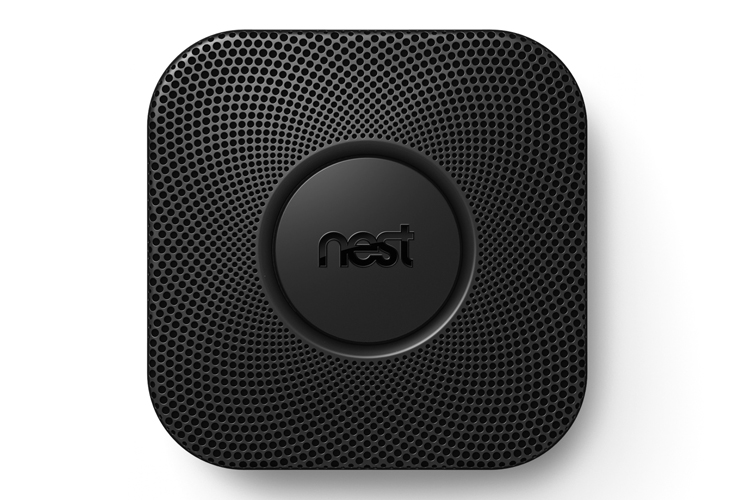Google buys Nest: is 'smart thermostat' a threat to privacy?
Google could use Nest data to gain an even more complete picture of your movements, say experts

A free daily email with the biggest news stories of the day – and the best features from TheWeek.com
You are now subscribed
Your newsletter sign-up was successful
GOOGLE'S $3.2m acquisition of Nest, a technology company best known for its "smart thermostat" that tracks people in their own homes, has prompted fears over users' privacy.
The Nest Learning Thermostat uses motion sensors to detect movement within a home, learns its user's habits and adjusts heat settings accordingly.
Nest has previously only used user information to improve its products and has not shared it with advertisers and other services, but technology experts have suggested Google might have other ideas in mind.
The Week
Escape your echo chamber. Get the facts behind the news, plus analysis from multiple perspectives.

Sign up for The Week's Free Newsletters
From our morning news briefing to a weekly Good News Newsletter, get the best of The Week delivered directly to your inbox.
From our morning news briefing to a weekly Good News Newsletter, get the best of The Week delivered directly to your inbox.
The acquisition, which is expected to close in the next few months, continues Google's "big new push" to apply its expertise to physical objects, from self-driving cars to robots and now home appliances, says Will Oremus in Slate magazine. He compares Google's end goal to the automated home in /The Jetsons/, adding: "It's an exciting notion, and in some ways a scary one."
Considering Google's history of sharing information with advertisers and the government, Nest users "have reasons to feel discomfited", says Rakesh Sharma in Forbes magazine.
Nest will continue to operate with its own distinct brand identity and has assured users it has "always taken privacy seriously and this will not change".
But Peter Higgins, an activist with the Electronic Frontier Foundation, tells Forbes that "technology companies have a history of putting out carefully worded statements and then figuring out a way to do what they want to do".
A free daily email with the biggest news stories of the day – and the best features from TheWeek.com
Google could easily combine Nest data with its other services to gain an even more complete picture of your movements, says Higgins. For example, it would be relatively easy for Google to establish that someone left their home after receiving an email from their girlfriend.
"When combined with other things Google knows about you, data collected inside your home could turn out to have considerable value to advertisers," says Richard Waters in the Financial Times. If a smart thermostat can work out when you have woken up or returned home, imagine how valuable that would be when Google is trying to work out the best time to serve you a relevant advert, he says.
So far America's Federal Trade Commission has been reluctant to make rules about this relatively new area of technology – dubbed the "internet of things" or "Thingternet" – for fear of stifling innovation.
But Stacey Higginbotham, on tech website GigaOm, says it is time the conversation about privacy and the internet of things "takes a step forward".
Even if Google has no designs on the "smart home", says Higginbotham, the data Nest has access to "will be like your child's forgotten Halloween candy sitting in your cupboard – it's something you know you shouldn't touch, but it will ultimately tempt you into doing something you shouldn't".
-
 Political cartoons for February 20
Political cartoons for February 20Cartoons Friday’s political cartoons include just the ice, winter games, and more
-
 Sepsis ‘breakthrough’: the world’s first targeted treatment?
Sepsis ‘breakthrough’: the world’s first targeted treatment?The Explainer New drug could reverse effects of sepsis, rather than trying to treat infection with antibiotics
-
 James Van Der Beek obituary: fresh-faced Dawson’s Creek star
James Van Der Beek obituary: fresh-faced Dawson’s Creek starIn The Spotlight Van Der Beek fronted one of the most successful teen dramas of the 90s – but his Dawson fame proved a double-edged sword
-
 Will AI kill the smartphone?
Will AI kill the smartphone?In The Spotlight OpenAI and Meta want to unseat the ‘Lennon and McCartney’ of the gadget era
-
 Has Google burst the Nvidia bubble?
Has Google burst the Nvidia bubble?Today’s Big Question The world’s most valuable company faces a challenge from Google, as companies eye up ‘more specialised’ and ‘less power-hungry’ alternatives
-
 How the online world relies on AWS cloud servers
How the online world relies on AWS cloud serversThe Explainer Chaos caused by Monday’s online outage shows that ‘when AWS sneezes, half the internet catches the flu’
-
 Is the UK government getting too close to Big Tech?
Is the UK government getting too close to Big Tech?Today’s Big Question US-UK tech pact, supported by Nvidia and OpenAI, is part of Silicon Valley drive to ‘lock in’ American AI with US allies
-
 Google: A monopoly past its prime?
Google: A monopoly past its prime?Feature Google’s antitrust case ends with a slap on the wrist as courts struggle to keep up with the tech industry’s rapid changes
-
 South Korea's divide over allowing Google Maps
South Korea's divide over allowing Google MapsTalking Points The country is one of few modern democracies where the app doesn't work
-
 Google avoids the worst in antitrust ruling
Google avoids the worst in antitrust rulingSpeed Read A federal judge rejected the government's request to break up Google
-
 Is AI killing the internet?
Is AI killing the internet?Talking Point AI-powered browsers and search engines are threatening the death of the open web